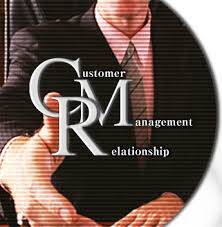

Specific Design
A tailored dashboard allows for refinement of work flow. Thus a company should choose a CRM that is capable of customizing forms and views. Data needs are industry specific. How a flower shop manages their customer base differs greatly than a construction firm. The most basic type of customization is designing branded templates. To have a company brand on the forefront of customer interfacing is a prime marketing tactic.
The ability to adjust the fields in any reporting is also a desirable feature. If the business is small, there is no need for a multitude of fields to cloud the data. In other words, it can be downsized; which is important. Capturing exact data will increase sales and overall service capacity. A customized view will also enable a company to sort data according to specific business needs. A user should have the ability to define, control, and adjust layouts to suit their job needs.
Modify Settings
Security is important for any organization. A good CRM will have a wide range of user rules and access rights. There should be endless flexibility, yet formidable protection. The program should allow the company to categorize user roles, and follow rules accordingly. To some organizations, such as banks and hospitals, access to appropriate levels of information, and data integrity, are essential features. File sharing should also be protected and monitored. Some CRM’s even allow for users to be granted access to certain files for specific tasks only.
Integration of third party systems is a CRM feature that enables a vast platform of communication. Mobility is a major theme in the modern business landscape, and if a relationship management tool has the capability to link to a mobile smart device, it adds another environment for business opportunity. Integration of third party systems encourages the business to continue outside of the building. This can include a variety of applications such as: credit processing, social media, and analytics. Any software or application that assists in daily functions should have the ability to integrate with the customer relationship management tool.
Automation
Perhaps the most applicable feature of the CRM is the ability to automate processes. Enforcing business rules through a strict set of predetermined filters enables the workforce to focus their productivity elsewhere. Without the need for tedious administrative tasks, employees are capable of more efficient production. This inevitably leads to an increase in accuracy for sales and marketing, and a tighter run organization in general.
Alerts, tasks and rules are a few ways that businesses are taking advantage of automation. The ability to flag hot button issues, organize tasks automatically, and create specific filters, enables a business to focus on the most important topics. When it comes to managing various platforms, automation can also be a useful tool in the social media environment. Customer segmentation in this arena, is a primary example of how marketing utilizes automation in a CRM. Routinely separating a customer base prior to any sales efforts is a simple process that saves time and money for any organization.
Customer relationship management tools are useful in any sense. How informed a company is on the capability of the tools, however, is what makes the difference. Customizing a CRM goes beyond practical use, but the payouts are big. With branded templates, guarded gate keepers and automated processes, a company is well equipped for success. Purchasing the software is the first step, engaging it is the final one.